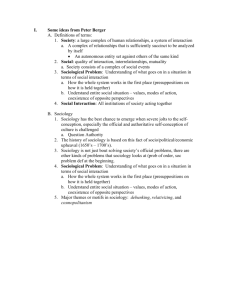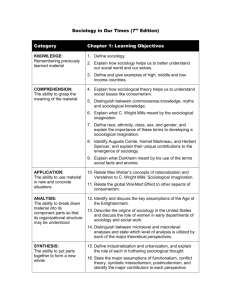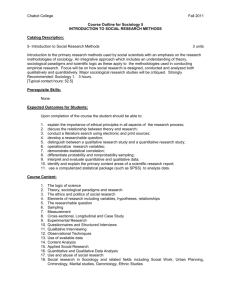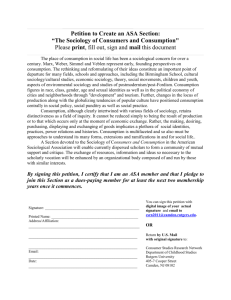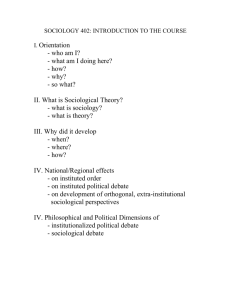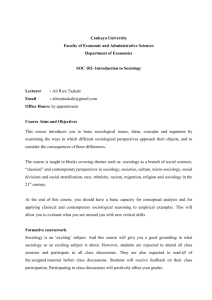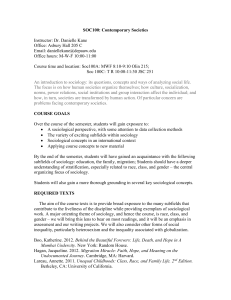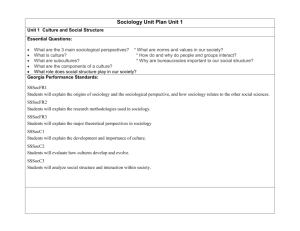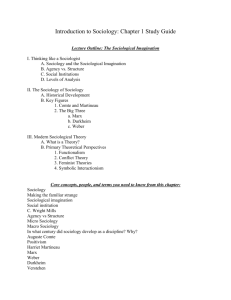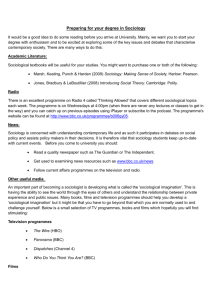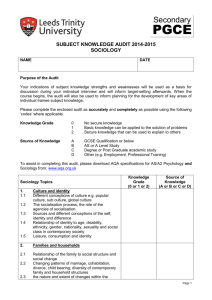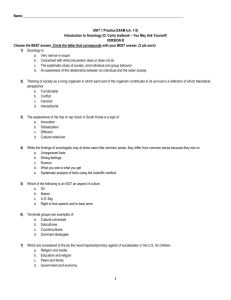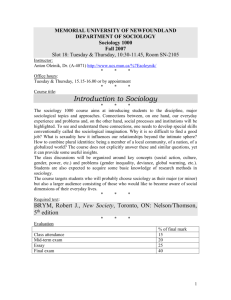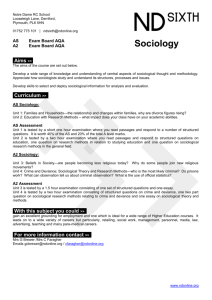Sociology of Markets
advertisement
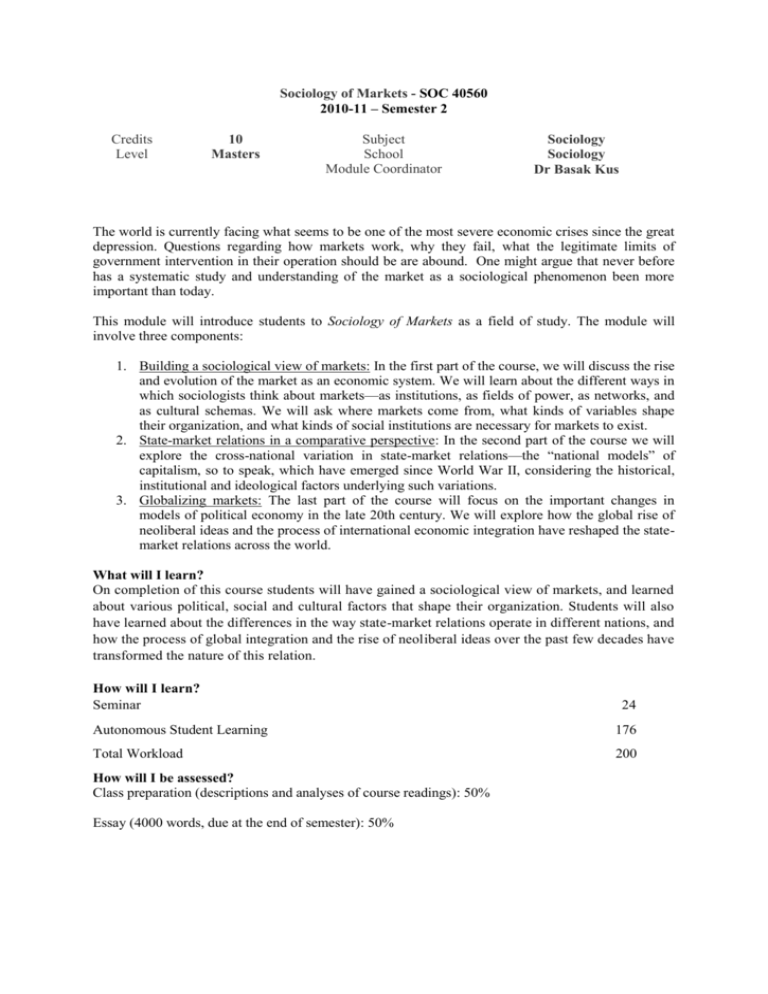
Sociology of Markets - SOC 40560 2010-11 – Semester 2 Credits Level 10 Masters Subject School Module Coordinator Sociology Sociology Dr Basak Kus The world is currently facing what seems to be one of the most severe economic crises since the great depression. Questions regarding how markets work, why they fail, what the legitimate limits of government intervention in their operation should be are abound. One might argue that never before has a systematic study and understanding of the market as a sociological phenomenon been more important than today. This module will introduce students to Sociology of Markets as a field of study. The module will involve three components: 1. Building a sociological view of markets: In the first part of the course, we will discuss the rise and evolution of the market as an economic system. We will learn about the different ways in which sociologists think about markets—as institutions, as fields of power, as networks, and as cultural schemas. We will ask where markets come from, what kinds of variables shape their organization, and what kinds of social institutions are necessary for markets to exist. 2. State-market relations in a comparative perspective: In the second part of the course we will explore the cross-national variation in state-market relations—the “national models” of capitalism, so to speak, which have emerged since World War II, considering the historical, institutional and ideological factors underlying such variations. 3. Globalizing markets: The last part of the course will focus on the important changes in models of political economy in the late 20th century. We will explore how the global rise of neoliberal ideas and the process of international economic integration have reshaped the statemarket relations across the world. What will I learn? On completion of this course students will have gained a sociological view of markets, and learned about various political, social and cultural factors that shape their organization. Students will also have learned about the differences in the way state-market relations operate in different nations, and how the process of global integration and the rise of neoliberal ideas over the past few decades have transformed the nature of this relation. How will I learn? Seminar 24 Autonomous Student Learning 176 Total Workload 200 How will I be assessed? Class preparation (descriptions and analyses of course readings): 50% Essay (4000 words, due at the end of semester): 50%





